Making a Change to Advance Community Health, Part One: Why Start with Trust
Collecting and sharing data to design measures that make people healthier sounds like a straightforward concept. Yet, anyone who’s ever set out to do this work knows that there are myriad complicated factors to consider along the way. Arguably, the most important among them is building trust with the community that the data-sharing work is meant to benefit.
Distrust in Technocracy
American public health, and politics in general, represents a type of governance that reduces questions of politics to technical management, thereby offering refuge from important ideological combat. As the journalist Masha Gessen writes, “Rather than talk about the future, we talked about policy; rather than talk about what’s right and just, we talked about what’s realistic and lawful; rather than discuss values, we discussed strategies.”
We’ve seen over the decades how reducing questions of politics to technical management invites only a minority class of credentialed, college-educated ‘experts’ to make decisions about everyone’s future – despite there being little to no correlation between good political judgment and high SAT scores.
“Governing well requires practical wisdom and civic virtue – an ability to deliberate about the common good… [R]ecent historical experience suggests little correlation between the capacity for political judgment, which involves moral character as well as insight, and the ability to score well on standardized tests and win admission to elite universities,” writes the political philosopher Michael J. Sandel.
Tying political power to technical expertise excludes the majority of people from collective decision-making. After all, most people do not have a college degree. And in today’s society, most people cannot afford one. This means that the people whose lives public health measures are meant to improve are mostly barred from shaping decisions, outcomes, and ultimately our shared reality.
If we suspect that there’s distrust in communities toward well-meaning health interventions, technocratic conceit is one big reason why.
Plural Perspectives
At the same time, public health organizations are uniquely situated to share power with oppressed, exploited people and elevate their perspectives within political circles. Nonprofits that seek to do this work embrace the view that those who have been historically oppressed and exploited possess a superior understanding of their circumstances and the potential solutions.
Philosophically, this has roots in the observation that in order to survive in an oppressive, class-based society, the oppressed must understand the practices of oppression, and therefore understand the worlds of both the oppressed and the oppressor. The oppressor, however, need not possess this plural vision. Colonizers rarely learn the language of the colonized.
Feminist theorists such as Sandra Harding argued that, “social and political disadvantage [of the marginalized] can be turned into an epistemic, scientific and political advantage.” W. E. B. Du Bois called the plural vision necessary for survival ‘double consciousness’. Salman Rushdie argued that those outside society (in his case, emigrant authors writing about their homeland) possess a double perspective, a “stereoscopic vision,” that affords them a more complete view of history and society. There are many ways to describe the same concept.
Public health organizations increasingly recognize this simple truth and are looking to invite and include people with lived experiences of inequity in political decisions. However, the same forces that have made a plural vision necessary inevitably produce distrust toward governing bodies. To invite people with lived experiences to the decision-making table – the same table they were previously excluded from – and to share power with those people, public health nonprofits must earn the trust of communities and build new foundations.
Data Across Sectors for Health
Collecting and sharing data can be an effective way to design measures that make communities healthier. But for this kind of work to succeed, we must begin by building trust with the community that the data-sharing work is meant to benefit.
Since 2015, DASH has funded over 100 community collaborations aiming to share data to improve community health. Along the way, we have collected insights and learnings from our network. These findings have formed the foundation for what we call the DASH Framework, and we are excited to share this Framework with you through a webinar series titled “Advancing Community Health Through Equitable Data Ecosystems.”
The DASH Framework maps out all potential considerations in the work of data sharing. Think of it as a map for data sharing that identifies all major landmarks. Ultimately, it demonstrates how people can use data to make educated, informed decisions regarding programs and policies that improve community well-being.
Building trust with communities and sharing decision-making powers with those communities are constitutional aspects of our framework. We discussed this concept in our first webinar, titled Building Foundation with Community (hosted in June 2022).
We reflect on this webinar in more detail in our next post. Until then, we invite you to revisit the recording of the webinar, and make sure to follow us on Twitter and LinkedIn, so you don’t miss any future content.

